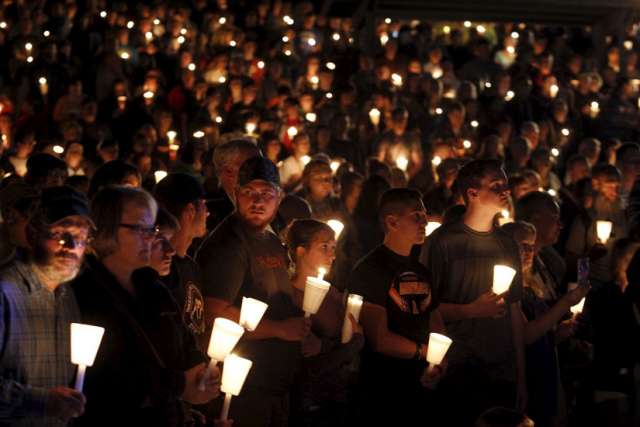The widow of Zarephath had every reason to be fearful. She was poor, and what little food she had left was barely enough for the woman and her son. It is easy to see why she was not enthusiastic about sharing what little she had with the prophet Elijah. He reassured her that God is generous, and her trust and generosity would result in abundance.
Her trust carried her through and she shared what little she had with Elijah. Just as the prophet promised, she did not lack for flour and oil until the long drought in Israel ended.
As a side note, she was not an Israelite, and this story appears again in chapter 4 of Luke to illustrate God’s compassion and generosity to all people, including non-Israelites. In hard economic times, there is a tendency to circle the wagons and protect what one has. Hard times can bring out the best and the worst in people. But when “lifeboat ethics” become the norm, everyone suffers.
If everyone were willing to share what they have, there would be more than enough for everyone. Often those who have the least are the most willing to share with those in need. Generosity can cut through darkness and despair and push back fear and greed.
At this point in human history we will have to learn the laws of generosity, sharing and abundance if we want to survive. Whatever we are willing to release and share with love will return to us several fold.
The author of Hebrews firmly believed that the life, death and resurrection of Christ inaugurated an entirely new relationship between God and humanity.
He used the language and symbolism of the prevailing sacrificial system not only to explain the ministry and mission of Jesus, but to show how sacrifice was no longer needed. Jesus offered Himself as the final and definitive sacrifice. God does not desire or need offerings of blood or the lives of animals. The acceptable sacrifice is the human heart and soul, offered to God and to others in justice and loving service.
Wherever there are things of great sanctity, there is an even greater potential for abuse. Religion is a prime example, and no religion is exempt. It is easy to use a claim to speak on God’s behalf to instill fear and manipulate or exploit others. Jesus criticized those who used their positions of authority in a religious body to inflate their egos and to lord it over other people.
If that weren’t bad enough, they enriched themselves and enjoyed substantial privileges and public respect. In continuity with the message of Jesus, Pope Francis has reminded us of this warning in his challenges to greater humility, service and simplicity.
Times in which the Church enjoyed great privilege and power have rarely ended well. The Church was usually at its healthiest when it was persecuted and powerless. The vision and teaching of Jesus was simple but uncompromising: let go of power and privilege and be a community of equals.
The story of the poor widow is a great example of the sort of trust and generosity that Elijah called forth from the widow of Zarephath. Her donation to the temple treasury was small in comparison to the many rich people that were depositing huge amounts.
The rich folks gave from their surplus and never felt the pinch of their donation. In actual terms her donation was much greater. Motivated by great love, she gave all she had — she did not have any to spare. We can only hope that God blessed her in return with her basic needs as in the case of the previous widow.
The principle of God’s generosity must always be tempered with caution. One need only watch some of the televangelists to see how the credulity and generosity of faithful people are often exploited for selfish ends.
Humility, trust and open-hearted generosity link together these passages from Scripture. We are great in God’s kingdom to the degree that we put them into practice. The future of our world depends on our willingness to do so.


